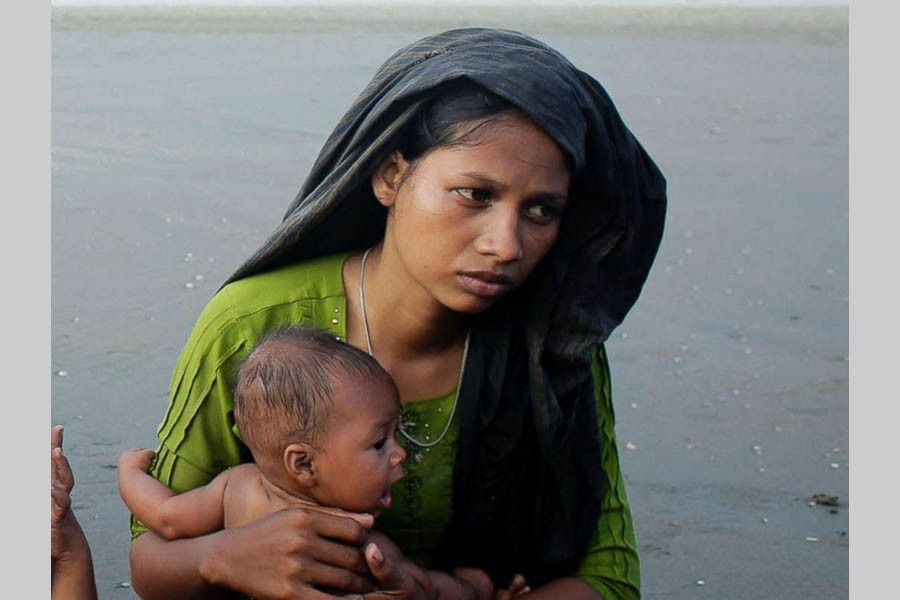We are appalled but not surprised at the news that 324 domestic women workers who had fallen victim to oppression in Saudi Arabia have returned to Bangladesh recently. The government's wage earners' welfare board informs us that the ill-fated women who had endured indignity had to be brought back home before the expiry of their contract slated between January 8-13.
It is also learnt from the welfare board that many of the victims had been sheltering at the Bangladesh embassy's 'safe home' for quite a spell of time . Some 75 still remain at the shelter home awaiting their turn for return home.
Their stay in the crowded safe homes is only a temporary relief knowing that an uncertain future awaits them. Even their repatriation depends on how early the formalities are completed by Saudi authorities in conjunction with Bangladesh embassy. The silver-lining in the gloom is that the insufferable condition in the safe homes was seen at first hand by the Saudi deputy minister of Labour on January 4. And, he ordered prompt handing of exit visas to the languishing women workers. In a totally subservient condition though, many of the victims may have lost possession of their passport.
All this has been a nagging issue and embarrassingly at that for the sending country. Its own sense of dignity takes a hit and the perpetrators think they can do anything with a person, especially a woman, on hire. Little do they realize that women who hazard employment in a hostile climate deserve to be treated with an extra bit of decency, consideration and dignity.
Actually, the engagement is purely economic and contractual, meaning a deal is struck between an employee and the employer to cater to their respective needs-household work for the employer and secure income for the domestic help in a safe job environment. There is no room for exploitation of the hired, physical or otherwise.
But because there are intermediaries in the jobbery system in which the interest of the workers comes last, in a male-dominant society, an employer can cover up his excesses by blaming it out on others. We needn't hesitate to take issue with a host country calling for a hands-on policy on its part to deal with the wicked elements bringing disrepute to the host country.
The present Saudi King Salman has earned a place world-wide for his respect for women. We hope that he will rivet his attention on to an urgent need for alleviating the plight of women working in Saudi households to the benefit of both the host and the sending countries.
It may be recalled that in February 2015, Saudi Arabia signed an agreement with Bangladesh to receive workers in its domestic sector. It was looked upon as a fresh beginning of welcoming Bangladeshi women workers underpinned by a congenial environment thought to have been fostered by all concerned. But the expectation seems to have been to a large extent belied. It should not be lost on anyone that resumption of women employment from Bangladesh was marked when some countries including the Philippines and Indonesia had stopped sending their female workers to the Middle East due to allegations of sexual abuse reported by the returnees to those countries. Even their embassies might have added to the reports.
According to the government's bureau for manpower, employment and training (BMET), last year more than 0.10 million female workers had gone to some 18 countries of whom 83,354 went to Saudi Arabia alone. In that context, it becomes incumbent on the Saudi government to lead the way for an intake system that is protective against the vulnerabilities of women workers.


